|
Identifying Cannabis Use In Dancers Across the Globe
• Seeking dancers worldwide • Online survey, anonymous, approximately 10 minutes to complete • Questions address the utilization of cannabis within the past 6 months If interested, please email Joshua Honrado at [email protected]. Primary Investigator: Donald J. Rose, MD, Harkness Center for Dance Injuries at NYU Langone Health Study on Mental Health The purpose of the study is to examine emotion regulation and mental health among dancers. We are seeking dancers over the age of 16 who are currently participating in dance in Canada and the United States. Dancers can be participating at recreational, competitive, or professional levels. Participation in this study involves an online survey that will take 30-45 minutes to complete. The survey will ask questions related to mental health, sport-related distress, emotion regulation, symptoms of depression and anxiety, and performance satisfaction. Participants can leave their email if they would like to receive a $5 electronic gift card for completing the survey; email addresses will not be linked with survey responses. If you are interested in participating in this study, click on the survey link below for more information and to provide consent to participate: https://redcap.utoronto.ca/surveys/?s=4HJN8L93AF4D7Y4L
0 Comments
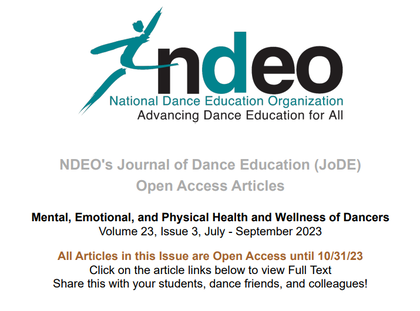 The Journal of Dance Education: Vol 23, No 3 (Current issue) (tandfonline.com), Special Issue on the Mental, Emotional and Physical Health and Wellness of Dancers is open-access until the end of October. No miss these articles on dancer wellness, including HDC past-president and founding member Andrea Downie's Equity-Informed Dancer Wellness. 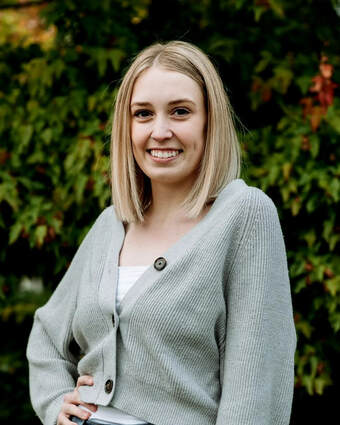 Congratulations to Jenna Magrath, recent graduate from University Calgary's combined BKIN/BA dance degree, who is the recipient of Healthy Dancer Canada's 2022 Research Award. Her study, Undergraduate contemporary dancers' perceptions of dance-related pain, injury, and fatigue, aimed to understand university contemporary dance students’ perceptions of pain, injury, and fatigue. It is known that dancers have high rates of injury, and that it is common for dancers to dance while in pain, injured, or fatigued. Cultural norms that promote dancing through pain, and fear and avoidance of disclosing pain, injury, or fatigue exist within dance contexts, and may contribute to injury risk. From our qualitative analysis, four themes were generated: (1) It’s more unusual for people to sit out than to dance through their injuries; (2) Pain, injury, and fatigue aren’t just physical; (3) Safe dancing environments are important; (4) Implementing dancer health knowledge into practice is complicated. Cultural norms of persevering through and normalization of pain, injury, and fatigue remain present in university dance programs. Findings highlight the negative psychological impact injuries can have, and that implementing knowledge into practice remains difficult. The role that dance educators play in dancers’ understanding of pain, injury, and fatigue was identified, and further emphasis on safe dance practice is needed to establish healthy dance habits. Change is still needed to foster physically and psychologically safe dancing spaces. Jenna also received a 2022 Student Research Award from IADMS for this research. 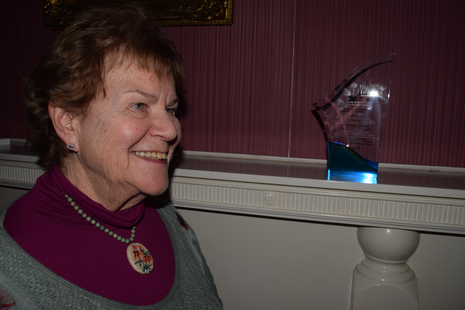 Congratulations to Dr. Bonnie Robson, recipient of Healthy Dancer Canada's Lifetime Achievement Award, 2022. Bonnie E. Robson MD DPsych DCP FRCPC has spent 40 years in clinical adult and child psychiatry and since 1983 specializing in performance arts medicine and performance enhancement for vocal and instrumental music students, dance students, teachers, administrators, and artistic directors. Until her retirement in 2013 she consulted to athletes and artists at Pivot Sports Medicine and Orthopedics in Toronto. She was a consultant to the National Ballet School of Canada from 1983-1995 and Quinte Ballet School of Canada from 2000-2011 and is currently on the Wellness team for Canada’s Ballet Jorgen. Her original arts-related research makes her a popular speaker/presenter at national and international conferences in such countries as Sweden, Spain, Netherlands, Cuba, Singapore, and USA. Recent presentations on Mindfulness approach to performance and Psychological Skills training have been presented university music programs for undergraduates and postgraduates and dance educators. She has published her research in such juried journals as the Journal of Dance Medicine and Science and Medical Problems of Performing Artists where she also serves on the editorial board. She was on the Board of Directors of PAMA and has served on the Board of NETWORK Schools and chaired their research committee. She was honoured by this organization with a lifetime achievement award for her contribution to arts education and from PAMA the Bill Dawson Award. She is a member of the Dance USA Task Force on Wellness, a board member of the Bridge Dance Project, and a founding member of Healthy Dancer Canada, as well as a member of its membership committee. National Dance Education Organization (NDEO) has made HDC founding member and Past President Andrea Downie's article Equity-Informed Dancer Wellness open-access for the months of August and September. Read the article at Journal of Dance Education: Full article: Equity-Informed Dancer Wellness (tandfonline.com).
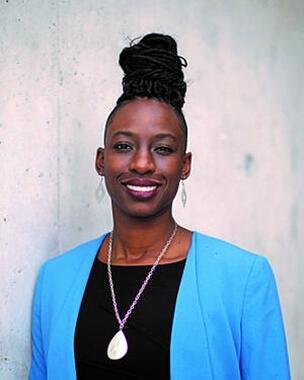 HDC Past President and BIPOC Advocacy Working Group member, Andrea Downie, had the opportunity to interview Dr. Janelle Joseph of University of Toronto about the importance of representation in dance and academia. AD - How does lack of representation impact dancers’ / athletes’ health, wellbeing, and performance? JJ - Lack of representation impacts dancers’ / athletes’ health and wellbeing as it can lead to enhanced feelings of being an imposter and doubt over one’s inclusion and talents. When Black dancers don’t see themselves represented in the teachers, dance school owners, administrators, or educators they may not imagine that those roles are for them. They might limit their imaginations and restrict their roles. As a Black dance teacher and educator, I have acted as a role model and mentor for many people. Black leaders provide guidance to all learners, but especially People of Colour, to understand how to navigate their careers. AD - Please discuss the importance of representation in academia. JJ - Representation in academia is essential for the same reasons. Faculty have to not only guide students but decide on curricula, syllabi, and do committee work within the department that helps to shape the departmental and faculty culture. Without racialised and specifically black faculty the knowledge that is produced about black communities will be limited. This will affect student learning, which ultimately has an impact on the broader culture as students with understanding of and respect for Black peoples and cultures will end up influencing many different industries in anti-racist ways. AD - What are some of the barriers that Black dance scholars face in the academy? JJ - The barriers faced by Black dance scholars are replicated in many different faculties. It is clear that hiring practises are not equitable. In addition to being excluded from hiring and promotion, there is an over-burden of equity work in addition to academic work even if one’s research and teaching do not focus on Black issues. Many Black faculty feel obligated to make things more fair for the next generation to come and end up doing more service work. The burden is especially heavy for those socialized as women who feel pulled into caring and administrative roles. Another important issue for black dance scholars is that we often have to be away from our campuses for research. There is great research happening on black dance in Canada. However, many dance researchers need to travel to Brazil, the U.S., the African continent or across the Caribbean for their research. This can add additional strain to our faculty members role and our personal lives. I don’t think scholars in bench science or humanities consider these additional pressures. AD - How would you describe your research to those not in academia? JJ - To those not in academia I say my research relates to ideas of movement (including dance, sport, and martial arts) and ideas of culture (including race, multiculturalism, and nationalism). I love exploring the meanings we make from, communities we form within, and stories we tell about the moving body. Dr. Janelle Joseph is an Assistant Professor in Critical Studies of Race in the Faculty of Kinesiology and Physical Education and Founder and Director of the Indigeneity, Diaspora, Equity, and Anti-racism in Sport (IDEAS) Lab. Dr Joseph studies broadly defined movement practices including dance and carnival culture, and produces award-winning research including three books. https://kpe.utoronto.ca/faculty/joseph-janelle Texas Tech University Associate Professor of Dance, Dr. Ali Duffy seeks participants in a research project about women’s negotiations of their careers in dance with pregnancy and/or motherhood. Participation in this study consists of an online survey which will take approximately 20 minutes to complete, and a virtual (video conference or phone) 60-90 minute follow-up interview. Interview questions focus on the participants’ experiences in their careers in dance relevant to their experiences with pregnancy and/or motherhood. Participants’ names and contact information will be kept confidential and no names will be used in published or presented materials. The results of this research will be published in the forthcoming book, Dancing Motherhood: Contexts and Perspectives from Working Mothers in Dance, under contract with Routledge. To participate, individuals must: be over the age of 18, have experienced pregnancy and/or motherhood in any form (through pregnancy, surrogacy, adoption, etc.), and have held at least one job in the dance field during pregnancy and/or motherhood. Please participate by clicking on the survey link below. Please contact Dr. Ali Duffy ([email protected]) with any questions. This study has been approved by the Human Research Protection Program Institutional Review Board at Texas Tech University.
https://www.surveymonkey.com/r/DancingMotherhood
|
AUTHORSHDC connects dancers, dance educators, health care professionals and researchers across the world via our News blog and Members' Newsletter. Share our news and newsletters in your studio, school or clinic! Categories
All
Archives
July 2024
|
|
|
Proudly powered by Weebly
Site illustrated by Lisa Dickson
© Healthy Dancer Canada - The Dance Health Alliance of Canada, 2024 |

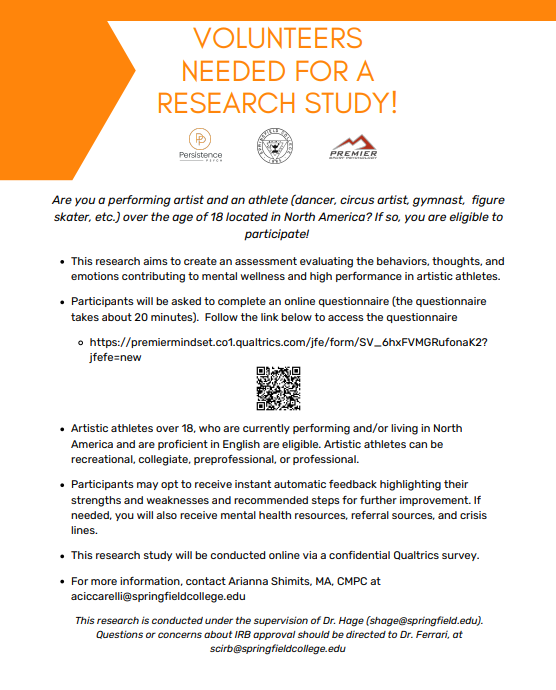
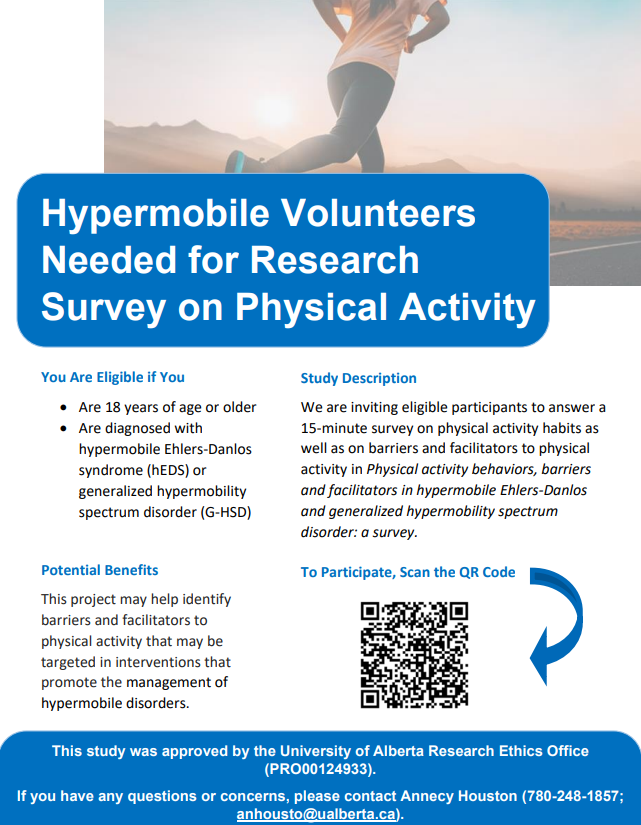
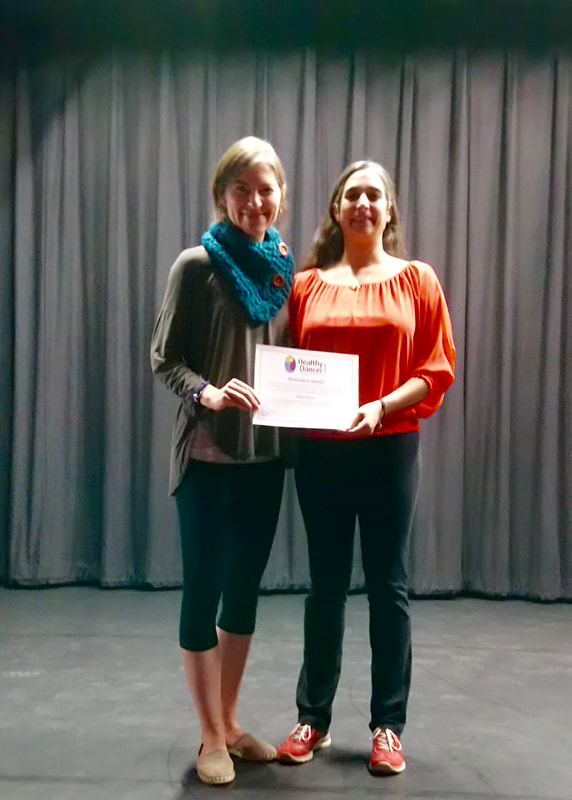
 RSS Feed
RSS Feed